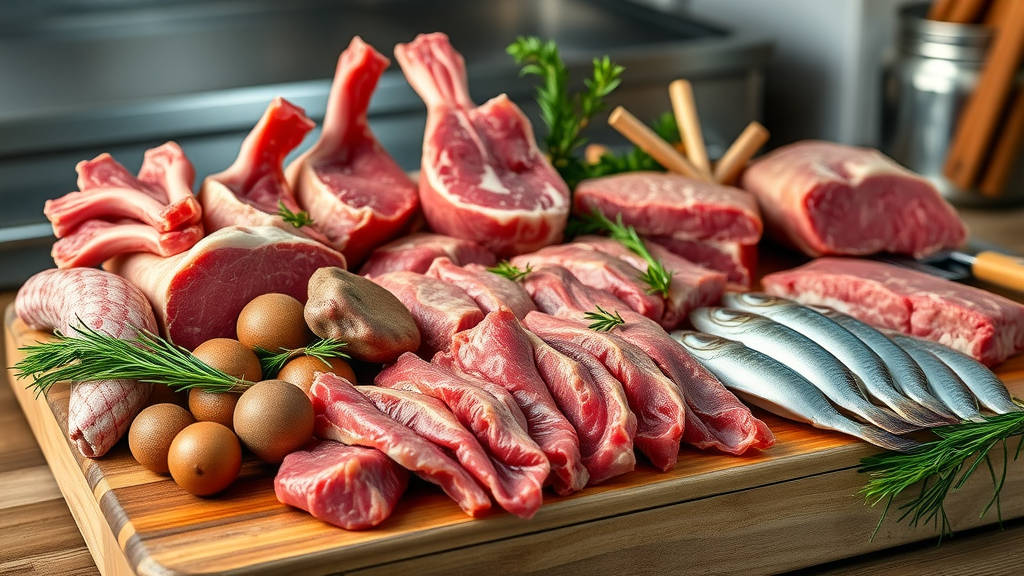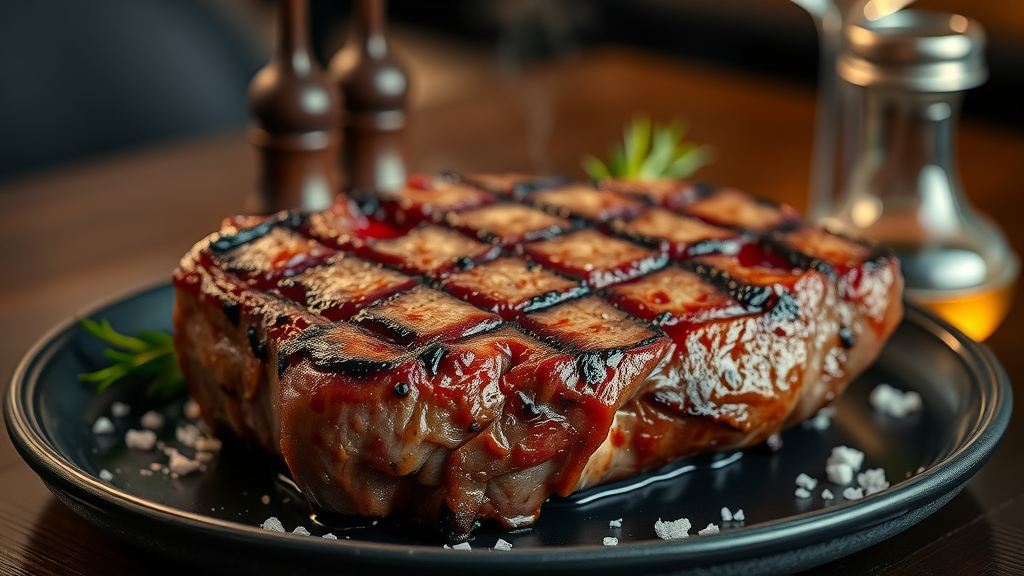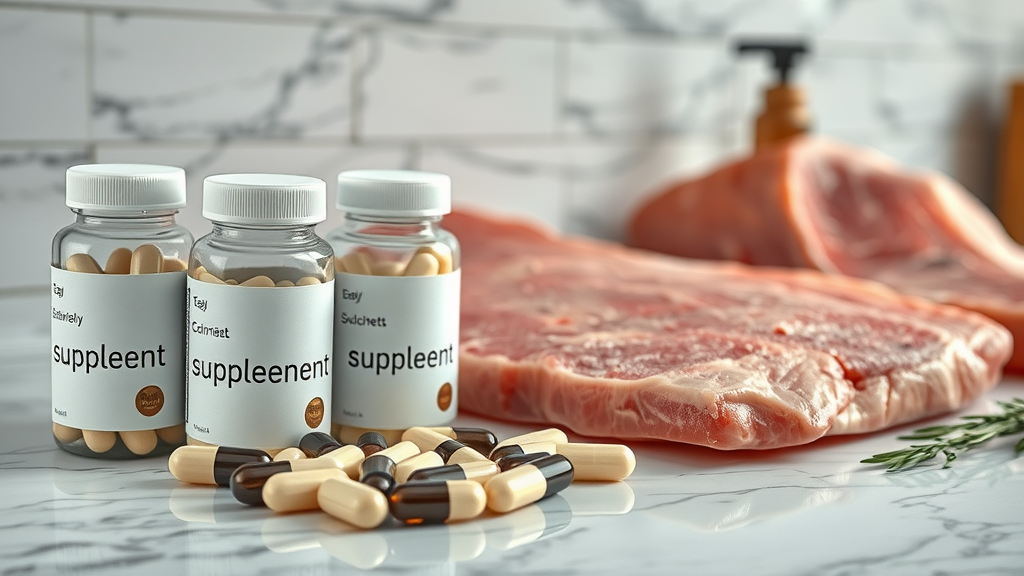Shocking but true: Up to 70% of carnivore dieters develop nutrient intake imbalances within the first year—most without even realizing it. Whether you’re experiencing stalled weight loss, fatigue, or health complaints despite devouring steak and bacon, your carnivore diet nutrient intake could be the culprit. This guide delivers a rapid, insider-driven roadmap to fixing micronutrient and macronutrient gaps—in just 24 hours.

Startling Facts: The Hidden Truth About Carnivore Diet Nutrient Intake
"Up to 70% of carnivore dieters experience nutrient intake imbalances in the first year – yet most remain unaware." – Insider Nutrition Research Group
Recent nutrition research reveals a jarring truth: while the carnivore diet is celebrated for its simplicity and promise of rapid weight loss, imbalances in critical vitamins and minerals occur far more frequently than many realize. This “meat diet” strips away plant foods, inadvertently eliminating many food groups that supply essential nutrients. Even among experienced dieters, nutrient deficiencies such as vitamin C, magnesium, or trace minerals often go undiagnosed until fatigue, poor recovery, or stalled weight loss emerges.
Why does this happen? The carnivore diet nutrient intake equation changes when limited to animal foods, red meat, dairy products, seafood, and organ meat. Knowing what’s missing—and how to get it back—can make or break your results. And with new insider analysis, it turns out that strategic food choices and meal plan rotation are critical for unlocking the diet’s full health benefits and avoiding common pitfalls.
What You'll Learn About Carnivore Diet Nutrient Intake
- The essential nutrients needed for optimal health on a carnivore diet
- How to structure a meal plan for balanced carnivore diet nutrient intake
- Expert tips to prevent nutrient deficiencies with animal-based foods and organ meats
- Immediate steps to fix vitamin and mineral intake on a strict meat diet
- How to avoid misinformation that hinders your weight loss and overall health benefits
Carnivore Diet Nutrient Intake: Why It Matters

Understanding Essential Nutrient Requirements for the Carnivore Diet
While some may argue animal foods alone provide all the body needs, expert insight shows gaps commonly emerge across a strict carnivore diet. A balanced intake of macronutrients (protein, fat) must be matched with daily requirements for vitamins and minerals—many of which are abundant in organ meat but scarce in muscle meat alone. For example, B vitamins, zinc, and vitamin A are plentiful in beef liver, yet nearly absent from chicken breast or steak-only regimens.
To truly thrive on a meat-based diet, and bypass the pitfalls that lead to anemia, brain fog, or slow recovery, it’s critical to understand both what is supplied and what’s missing from animal foods. Experts note that rotating between different food groups—such as red meat, eggs, seafood, and full-fat dairy—boosts essential nutrients and mimics the variety evolutionarily found in animal-based diets.
How Carnivore Diet Nutrient Intake Impacts Weight Loss and Health Benefits
Outsized expectations around weight loss abound in carnivore circles, but success hinges on nutrient intake. High-protein, low-carb diets can accelerate fat loss, but deficiencies in vitamins and minerals (like magnesium, potassium, or vitamin K2) rapidly stall results and can lead to mood or heart health issues. Safe, sustainable weight loss depends on a strategic approach to nutrient diversity—especially through inclusion of organ meats, seafood, and occasionally dairy products.
The health benefits of a well-formulated carnivore diet—improved blood sugar control, reduced inflammation, stable energy—are only maintained when your body receives what it needs, every day. Overlooking these principles opens the door to what researchers call the “increased risk” window, where nutrient inadequacies quietly undermine your goals.
Insider Warnings: Increased Risk of Nutrient Deficiencies with a Meat Diet
Despite the substantial benefits of animal foods, relying solely on muscle meats is one of the biggest insider mistakes. The risk of missing essential nutrients—like vitamin C, folate, and manganese—rises sharply unless organ meats and seafood are included. Even more, restrictive eating can lead to subtle but meaningful deficiencies that compromise not only weight loss, but long-term health, including cardiovascular and cognitive function.
Insiders recommend frequent assessment of your diet’s variety. Watch for early warning signs of nutrient deficiencies—muscle cramps, brittle nails, mood swings—and respond by rotating new animal products and organ meats into your weekly meal plan. The bottom line: strategic variety is a necessity, not an option, for those seeking the full health benefit of a carnivore lifestyle.
The Science of Carnivore Diet Nutrient Intake: Core Principles
Animal Foods vs Plant Foods: Key Differences in Nutrient Profile
Animal foods universally provide high-quality protein, bioavailable vitamins (like B12 and retinol), and minerals such as heme iron and zinc, but tend to lack certain nutrients found only or primarily in plant foods—like vitamin C, certain polyphenols, and fiber. Plant foods offer a wider selection of antioxidants and vitamin K1, but often deliver minerals in less-absorbable forms due to plant compounds called phytates.
On a carnivore diet, the absence of plant foods demands careful attention to missing nutrients. Smart inclusion of eggs, fish, and especially organ meats (high in vitamins and minerals less prevalent in muscle meats) is essential to overcome potential shortfalls. This is why a simple “steak and eggs” meal plan isn’t enough—precision in food selection makes the difference between flourishing and fatigue.

Ketogenic Diet vs Carnivore Diet Nutrient Intake: Insider Comparison
While both are popular low-carb diet styles, the carnivore diet eliminates plant foods entirely, whereas the ketogenic diet allows non-starchy vegetables and some nuts, providing a security net for vitamins and minerals like potassium and magnesium. As a result, carnivore diet nutrient intake requires deliberate planning—relying both on varied animal products and, where necessary, supplementation—to fill in the nutritional gaps left by plant exclusions.
Many believe that the ketone boost alone protects against deficiencies, yet evidence shows nutrient intake must be prioritized in both approaches. For sustained benefits, experts recommend cross-referencing your food intake with nutrient targets, and supplementing only as a last resort when optimal variety is not achievable through diet.
Breaking Down Essential Nutrients on a Carnivore Diet
Macronutrients: Protein Intake, Red Meat, and Saturated Fat
At the heart of the carnivore diet lies protein intake—critical for muscle repair, hormonal balance, and metabolic rate. Red meat delivers complete proteins and high levels of iron, zinc, and B vitamins, but it is also rich in saturated fat. While saturated fat is debated due to its association with heart disease in traditional nutrition circles, many insiders report improved cholesterol profiles and weight loss with strategic inclusion of fatty beef, lamb, and organ meats.
Still, variety matters: rotating between red meats, fatty fish, and whole eggs ensures both diverse amino acids and fat-soluble vitamins, while preventing over-reliance on any one animal food. For those wrestling with cravings or energy dips, adjusting the fat-to-protein ratio can often restore balance in just a day or two.

Micronutrients: Vitamins and Minerals Commonly Missed
When plant foods fall away, securing adequate vitamins and minerals becomes paramount. Nutrients like vitamin C, magnesium, manganese, and even potassium are at higher risk for deficiency—yet insiders find that adding just a few servings per week of liver, kidney, and shellfish closes most gaps. For vitamins and minerals that are low (or missing) in red meat, such as calcium and vitamin D, occasional dairy products (full-fat yogurt, hard cheese) can tip the balance.
Insider tip: Micronutrient-rich food rotation is key—shrimp for selenium, salmon for vitamin D and omega-3s, and eggs for choline and biotin. Consistently rotating through these animal products will help maintain optimal health, even on a strict zero carb diet.
The Importance of Organ Meats and Dairy Products for Balanced Nutrition
Organ meats like liver, heart, and kidney are often called “nature’s multivitamin.” They deliver concentrated amounts of vitamin A, B vitamins, choline, folate, and iron—nutrients frequently under consumed on a red meat or steak-heavy regimen. Dairy products, while optional for some, provide calcium, vitamin K2, and additional protein, helping to round out your carnivore diet nutrient intake and support bone and cardiovascular health.
Regular inclusion of these foods is a pillar of insider carnivore practices, providing robust nutritional defense against the risks of single-food monotony. Even a single serving of beef liver per week can make the difference between optimal function and creeping deficiencies.
Understanding Blood Sugar Regulation on a Zero Carb Diet
Eliminating almost all carbohydrates means blood sugar regulation relies more on protein and fat for energy. Most carnivore dieters see stabilized glucose, reduced insulin, and less hunger—but experts caution that micronutrient intake (not just macronutrients) helps maintain these benefits. Low magnesium or potassium, often found in plant foods, may trigger irregular blood sugar or cramps until resolved with better animal food choices or supplementation.
Focusing on nutrient-dense animal foods—especially those rich in minerals—helps ensure smooth hormonal and blood sugar control, deeper satiety, and the metabolic edge many seek from a zero carb, high protein diet.
Comparison Table: Essential Nutrients in Carnivore Diet Foods vs. Recommended Daily Allowance
| Food (100g) | Key Nutrients | Content | % RDA (Adult) |
|---|---|---|---|
| Beef Liver | Vitamin A, B12, Iron, Folate | Vit A: 6500 IU, B12: 83mcg, Fe: 6mg | Vit A: 1000%+, B12: 1300%, Fe: 33% |
| Ribeye Steak | Protein, Zinc, Iron, B3 | Protein: 25g, Fe: 2.5mg, Zn: 4.8mg | Protein: 50%, Fe: 14%, Zn: 44% |
| Salmon | Vit D, Omega-3, B3 | Vit D: 570 IU, Omega-3: 1500mg | Vit D: 70%, Omega-3: 400%+ |
| Eggs | Choline, Biotin, Vit D | Choline: 147mg, Biotin: 10mcg | Choline: 27%, Biotin: 33% |
| Cheddar Cheese | Calcium, Vit K2, Protein | Calcium: 720mg, Vit K2: 15mcg | Calcium: 72%, Vit K2: 12% |
The Ideal Meal Plan for Optimal Carnivore Diet Nutrient Intake
Sample Meal Plan: 24-Hour Guide for Balanced Nutrient Intake
A properly curated carnivore meal plan eradicates nutrient worries in just a day. Here’s a 24-hour guide:
- Breakfast: Beef liver and eggs
- Lunch: Ribeye steak and bone marrow
- Dinner: Salmon and shrimp
- Snacks: Hard cheeses, eggs, or organ meat jerky
Each meal is designed for nutrient density and bioavailability. Liver ensures vitamin A and B12. Ribeye and bone marrow supply protein, healthy fat, and iron. Salmon and shrimp boost omega-3s and trace minerals. Finally, eggs and cheese provide choline, biotin, calcium, and vitamin K2—filling in the micronutrient spectrum and supporting blood sugar stability throughout the day.

Including Organ Meats, Red Meat, and Dairy Products: Insider Tips
The most successful carnivore dieters follow an insider rule of thumb: “Eat nose-to-tail whenever possible.” Including 2–3 organ meat servings per week, rotating between different red meats, and incorporating full-fat dairy—if tolerated—covers nearly all essential nutrients. When shopping, prioritize variety within animal foods: beef, lamb, pork, eggs, fish, shellfish, and cheese.
For those new to organ meats, begin with liver—cooked gently to retain delicate vitamins and minerals—and gradually explore heart and kidney. For dairy, choose minimally processed cheeses and plain yogurts for calcium and vitamin K2, both linked to bone and cardiovascular health benefits on a meat diet.
Smart Supplementation: Are Any Vitamins and Minerals Needed?
Not always. The majority of carnivore nutrient needs can be met with a smart food rotation. However, individuals with greater physical demand, pregnancy, or limited access to organ meats may benefit from targeted supplements such as magnesium, potassium, or vitamin D. Insiders stress that supplementation is a backup plan, not a foundation; strive to get everything possible from diverse animal sources before reaching for pills.
If using supplements, select forms that mirror those found in whole foods (e.g., magnesium glycinate, methylated B vitamins) for optimal absorption and to support the metabolic pathways emphasized in high-protein, meat-based diets.
Nutrient Deficiencies and How to Fix Them Fast
Most Common Carnivore Diet Nutrient Deficiencies Revealed
Even veteran carnivore eaters can encounter hidden gaps. The most frequently missed nutrients on a carnivore diet are vitamin C, magnesium, potassium, folate, and sometimes vitamin D. Red meat, for all its virtues, contains almost no vitamin C or folate, and only trace amounts of magnesium—nutrients critical for energy and immunity.
To offset this, smart dieters rely on organ meats, eggs, and seafood. These food groups fill gaps left by limited variety and muscle meat-only routines. Watch closely for weakness, slow wound healing, or irritability—common early signs of nutrient deficiencies on a restrictive meat diet.

How to Diagnose and Reverse Deficiencies in 24 Hours
Insiders suggest that most minor nutrient deficiencies can be reversed simply by adding back the missing food: for low iron or B vitamins, eat beef liver; for magnesium and potassium, add bone broth or shellfish. In urgent cases, such as signs of scurvy (bleeding gums, poor healing) or persistent fatigue, a 24-hour focus on organ meats and shellfish can rapidly restore critical vitamins and minerals—often noticeable within a day.
Regular baseline bloodwork, including tests for ferritin, B12, and vitamin D, allows quick diagnosis and correction. Remember, the body responds swiftly to the right inputs—especially when eating highly bioavailable nutrients from animal foods.
Real Insider Strategies for Maintaining Essential Nutrient Levels
"Strategic inclusion of organ meats can resolve most deficiencies nearly overnight." – Dr. Mark S., Clinical Nutritionist
Insiders also recommend maintaining a food diary, tracking symptoms, and reevaluating food choices monthly for continued health benefits. Don’t ignore hunger signals or mood changes—these may be your body's early warning signs that nutrient intake needs fine-tuning.
People Also Ask: Carnivore Diet Nutrient Intake

What are the nutrient requirements for a carnivore diet?
A carnivore diet demands meeting all essential nutrient needs through animal foods, including complete proteins, iron, zinc, B vitamins, vitamin A, omega-3s, and key minerals like calcium and potassium. Without plant foods, a robust food plan requires rotating red meat, organ meats, seafood, eggs, and dairy (if tolerated) to ensure no vitamins or minerals are missed. Tracking intake and adding variety are essential strategies that mirror time-tested insider practices for health and weight loss success.
Do you get enough nutrients on the carnivore diet?
Yes, but only if you’re intentional. A meat-based diet can deliver abundant protein and many minerals, but strict steak-only plans miss vital micronutrients. Incorporating liver, heart, eggs, fish, and dairy (where possible) is necessary for complete carnivore diet nutrient intake. Insiders note that most deficiencies occur in highly restrictive, monotonous meal plans—so prioritize variety to thrive.

What is the 80 20 rule for carnivore diet?
The “80/20 rule” means sourcing roughly 80% of your calories from muscle meats (like beef, pork, and lamb) and 20% from organ meats (liver, heart, kidney) and other animal products (eggs, dairy, seafood). This guideline is an insider secret to achieving both satiety and comprehensive essential nutrient coverage on a carnivore diet, while still enjoying the full flavor and health benefits of varied animal foods.
What are the nutrient goals for a carnivore diet?
Main goals: maximize high-quality protein intake, secure sufficient vitamins and minerals (including those often lacking in a typical meat-only diet), and optimize fat so you feel full and energized. Always rotate organ meats and fish for micronutrients (vitamin A, D, zinc, omega-3s), and supplement thoughtfully only if specific needs are not being met, in line with real insider recommendations for sustainable health benefits.
Insider Lists: Quick Dos and Don’ts for Carnivore Diet Nutrient Intake
- Do include organ meats regularly for vitamins and minerals.
- Do vary animal foods (seafood, red meat, eggs, dairy products).
- Don’t rely only on muscle meats.
- Don’t ignore signs of nutrient deficiencies.
- Do track your nutrient intake and adjust as needed.
Key Takeaways for Carnivore Diet Nutrient Intake

- A well-structured carnivore diet helps avoid nutrient deficiencies.
- Organ meats are non-negotiable for optimal nutrient balance.
- Meal plan rotation enhances nutrient diversity.
- Monitor and adjust your diet based on health feedback.
- Get immediate results by implementing expert insider strategies.
Carnivore Diet Nutrient Intake: FAQs
Is supplementation required on a carnivore diet for nutrient intake?

Not for most—but if you lack access to key organ meats, seafood, or full-fat dairy, targeted supplementation of magnesium, potassium, or vitamin D may be needed. True insiders get 90%+ of their nutrition from food, using supplements as backup, not a foundation.
How quickly can you correct nutrient deficiencies on a carnivore diet?
Thanks to the high bioavailability of animal foods, most minor deficiencies improve within 24–72 hours of strategic meal planning—especially with organ meats, bone broth, and seafood. Chronic or severe cases naturally take longer and may require professional guidance and testing.
What are must-have foods for meeting all nutrient needs?
Beef or chicken liver, eggs, ribeye steak, wild-caught salmon, shrimp or shellfish, and aged hard cheeses. These form the nutrient-dense backbone of any successful carnivore meal plan and provide nearly every essential vitamin and mineral—just as leading insiders recommend for weight loss and health optimization.
Conclusion: Your Roadmap to Optimal Carnivore Diet Nutrient Intake in 24 Hours
Act now: Rotate organ meats and seafood, track your intake, and leverage these insider strategies to resolve nutrient intake issues—fast. For more insights into how to avoid the lies that keep you sick, visit the HEalthy American Journal.
To enhance your understanding of nutrient intake on a carnivore diet, consider exploring the following resources:
-
“Carnivore Diet 101 | A Beginner’s Guide to an All-Meat Diet” provides a comprehensive overview of the diet, including the importance of incorporating organ meats to prevent nutrient deficiencies. (metabolic-body.com)
-
“Carnivore Diet Complete Guide [Facts, Tips & Meal Plan]” discusses potential risks and concerns associated with the diet, such as nutrient deficiencies and the absence of fiber, offering strategies to mitigate these issues. (ruled.me)
These resources offer valuable insights into maintaining balanced nutrition while following a carnivore diet.
 Add Row
Add Row  Add
Add 




Write A Comment